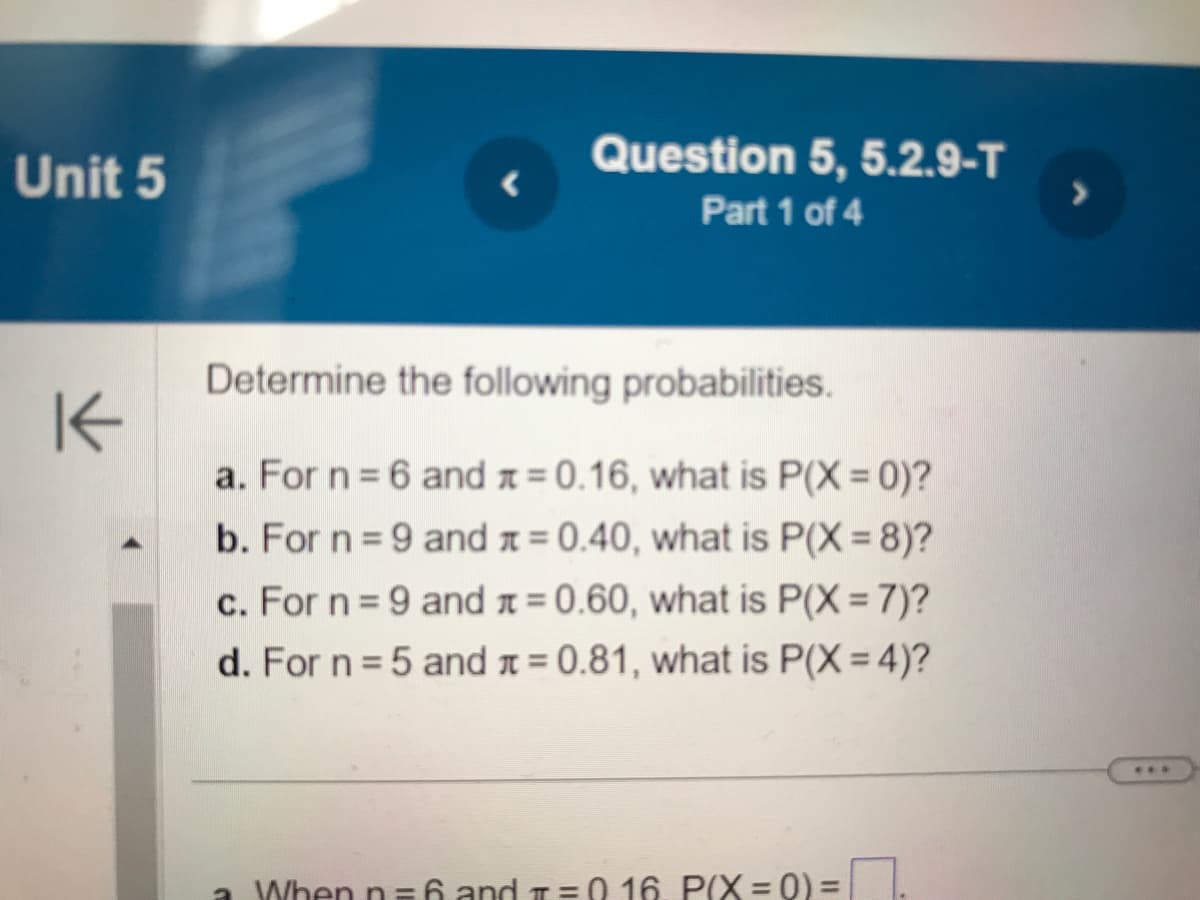a. For n = 6 and x = 0.16, what is P(X=0)? b. For n=9 and x = 0.40, what is P(X = 8)? c. For n = 9 and x = 0.60, what is P(X= 7)?
a. For n = 6 and x = 0.16, what is P(X=0)? b. For n=9 and x = 0.40, what is P(X = 8)? c. For n = 9 and x = 0.60, what is P(X= 7)?
Algebra & Trigonometry with Analytic Geometry
13th Edition
ISBN:9781133382119
Author:Swokowski
Publisher:Swokowski
Chapter10: Sequences, Series, And Probability
Section10.8: Probability
Problem 29E
Related questions
Question

Transcribed Image Text:Unit 5
K
Question 5, 5.2.9-T
Part 1 of 4
Determine the following probabilities.
a. For n = 6 and x = 0.16, what is P(X=0)?
b. For n = 9 and = 0.40, what is P(X=8)?
c. For n = 9 and = 0.60, what is P(X= 7)?
d. For n=5 and = 0.81, what is P(X= 4)?
a When n=6 and 1=0 16. P(X= 0) =
>
***
Expert Solution
This question has been solved!
Explore an expertly crafted, step-by-step solution for a thorough understanding of key concepts.
This is a popular solution!
Trending now
This is a popular solution!
Step by step
Solved in 2 steps

Recommended textbooks for you

Algebra & Trigonometry with Analytic Geometry
Algebra
ISBN:
9781133382119
Author:
Swokowski
Publisher:
Cengage

College Algebra
Algebra
ISBN:
9781305115545
Author:
James Stewart, Lothar Redlin, Saleem Watson
Publisher:
Cengage Learning


Algebra & Trigonometry with Analytic Geometry
Algebra
ISBN:
9781133382119
Author:
Swokowski
Publisher:
Cengage

College Algebra
Algebra
ISBN:
9781305115545
Author:
James Stewart, Lothar Redlin, Saleem Watson
Publisher:
Cengage Learning
